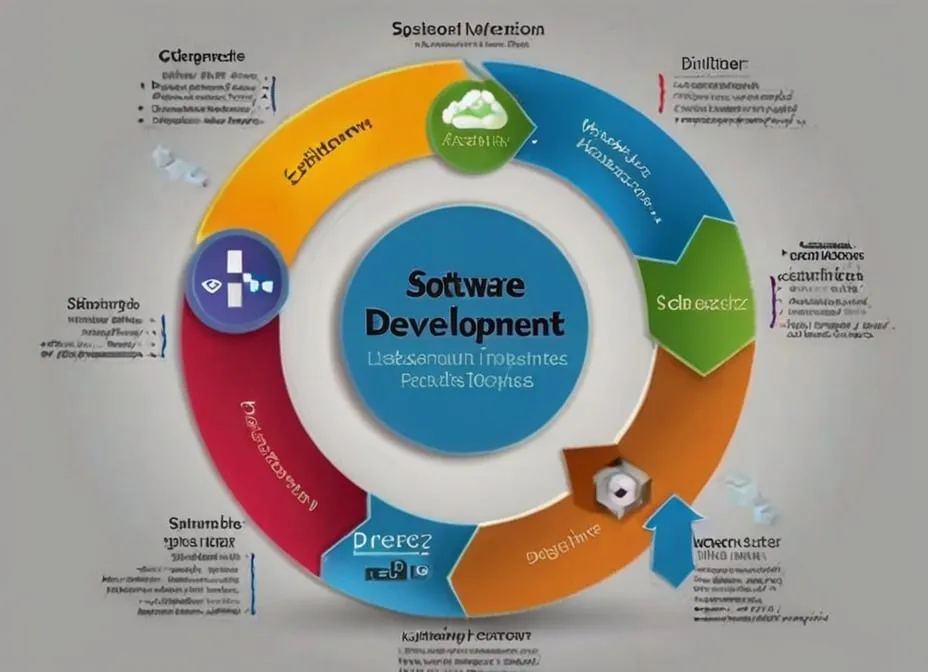Tech Careers: Benefits, Challenges & Paths to Success
Introduction to Tech Careers
In the ever-evolving digital landscape, technology has become an integral part of our lives, shaping the way we work, communicate, and interact with the world around us. As a result, tech careers have emerged as one of the most sought-after and dynamic fields, offering a wealth of opportunities for those with the right skills and mindset.
1.1. Defining Tech Careers
Tech careers encompass a wide range of professions that involve the design, development, implementation, and maintenance of various technologies, including software, hardware, networks, and information systems. These careers span across multiple industries, from software development and cybersecurity to data analytics and artificial intelligence.
1.2. The Rise of the Digital Age
The rapid advancement of technology has ushered in a new era, often referred to as the digital age. With the ubiquitous presence of computers, smartphones, and the internet, the demand for professionals who can navigate and harness the power of technology has skyrocketed. From e-commerce and social media to healthcare and education, technology has revolutionized nearly every aspect of our lives, creating a vast array of opportunities for those with the right skills and knowledge.
1.3. Tech Careers in Demand
As technology continues to evolve at a breakneck pace, the demand for skilled professionals in tech fields shows no signs of slowing down. According to the U.S. Bureau of Labor Statistics, employment in computer and information technology occupations is projected to grow 13% from 2020 to 2030, faster than the average for all occupations. This surge in demand is driven by the ever-increasing reliance on technology across industries and the need for innovative solutions to tackle complex challenges.
1.4. The Role of Tech in Society
Technology has become an integral part of modern society, influencing everything from healthcare and education to entertainment and transportation. Tech professionals play a crucial role in shaping the future by developing innovative solutions that address societal challenges, improve efficiency, and enhance people's lives. Their work has the potential to create positive change and drive progress, making tech careers not only lucrative but also highly impactful and meaningful.
2. Benefits of Tech Careers
While pursuing a career in technology can be challenging, it offers a multitude of benefits that make it an attractive choice for many individuals. From high-paying salaries and job security to opportunities for growth and innovation, tech careers provide a rewarding and dynamic professional path.

2.1. High-Paying Salaries
One of the most significant advantages of tech careers is the potential for high-paying salaries. According to the U.S. Bureau of Labor Statistics, the median annual salary for computer and information technology occupations was $97,430 in 2021, significantly higher than the median annual wage for all occupations ($45,760). Top tech roles, such as software architects, data scientists, and cybersecurity specialists, can command even higher salaries, making tech careers financially rewarding.
2.2. Job Security and Stability
As technology continues to permeate every aspect of our lives, the demand for skilled tech professionals remains strong. Companies across various industries rely heavily on technology to streamline operations, enhance productivity, and stay competitive. This constant need for technological solutions and expertise provides job security and stability for those in tech careers, even during economic downturns or periods of uncertainty.
2.3. Opportunities for Growth and Learning
The tech industry is constantly evolving, with new technologies and advancements emerging at a rapid pace. This dynamic nature of the field presents exciting opportunities for continuous growth and learning. Tech professionals have the chance to stay on the cutting edge of innovation, acquire new skills, and adapt to emerging trends, ensuring they remain relevant and valuable in the job market.
2.4. Flexibility and Remote Work
Many tech careers offer the flexibility to work remotely or in hybrid models, allowing professionals to achieve a better work-life balance. With the rise of cloud computing, collaborative tools, and video conferencing, tech professionals can often perform their duties from anywhere with an internet connection. This flexibility appeals to those seeking a more balanced lifestyle or accommodating personal circumstances.
2.5. Innovative and Impactful Work
Tech careers often involve working on cutting-edge projects and developing innovative solutions that can have a significant impact on businesses, industries, and society as a whole. From creating new software applications that streamline processes to developing advanced technologies that solve complex problems, tech professionals have the opportunity to contribute to groundbreaking advancements and leave a lasting legacy.
3. Challenges of Tech Careers
Despite the numerous benefits, tech careers also come with their fair share of challenges. From rapidly evolving technologies to work-life balance struggles, it's essential to understand and prepare for these potential hurdles.
3.1. Rapidly Evolving Technologies
The tech industry is characterized by rapid change and constant innovation. New technologies, programming languages, and frameworks are continuously emerging, requiring tech professionals to stay up-to-date and continuously learn and adapt. This fast-paced environment can be both exhilarating and challenging, as it demands a commitment to lifelong learning and the ability to quickly acquire new skills.
3.2. High-Pressure and Demanding Environments
Tech careers often involve working on complex projects with tight deadlines and high expectations. The pressure to deliver high-quality work, meet ambitious goals, and stay ahead of the competition can be intense. Long hours, overtime, and a fast-paced work environment are common in many tech roles, which can lead to stress and burnout if the work-life balance is not carefully managed.
3.3. Work-Life Balance Struggles
The demanding nature of tech careers can make it challenging to maintain a healthy work-life balance. The constant need to stay up-to-date with new technologies, meet deadlines, and deliver innovative solutions can often lead to long working hours and the potential for burnout. Achieving a balance between work and personal life is crucial for overall well-being and long-term success in the tech industry.
3.4. Job Insecurity and Outsourcing Risks
While tech careers generally offer job security, the industry is not immune to outsourcing and offshoring trends. As companies seek to reduce costs, some tech roles may be outsourced to countries with lower labor costs. Additionally, technological advancements and automation can sometimes lead to job displacement, requiring tech professionals to continuously upskill and adapt to remain competitive in the job market.
3.5. Ethical Concerns and Responsible Tech
As technology becomes increasingly integrated into various aspects of our lives, ethical concerns and the responsible use of technology have come to the forefront. Tech professionals may face moral dilemmas and difficult decisions related to privacy, data security, algorithmic bias, and the potential misuse of technology. Navigating these complex issues requires a strong ethical compass and a commitment to developing and implementing technology responsibly.
4. Exploring Popular Tech Career Paths

The tech industry offers a diverse range of career paths, each with its own unique set of responsibilities, skills, and opportunities. Here are some of the most popular tech career paths:
4.1. Software Development and Engineering
Software developers and engineers are responsible for designing, developing, testing, and maintaining software applications and systems. This career path encompasses various roles, such as web developers, mobile app developers, software engineers, and full-stack developers. Skills required include proficiency in programming languages (e.g., Java, Python, C++), problem-solving abilities, and an understanding of software development methodologies.
4.2. Cybersecurity and Information Security
With the increasing prevalence of cyber threats and data breaches, cybersecurity and information security professionals play a crucial role in protecting digital assets and safeguarding sensitive information. Roles in this field include ethical hackers, security analysts, and information security managers. Key skills involve knowledge of network security, risk assessment, incident response, and familiarity with security tools and best practices.
4.3. Data Science and Analytics
Data science and analytics professionals are responsible for collecting, processing, analyzing, and interpreting large datasets to uncover valuable insights and inform decision-making. Roles in this field include data analysts, data scientists, and business intelligence analysts. Skills required include proficiency in programming languages (e.g., Python, R), statistical analysis, machine learning techniques, and data visualization.
4.4. Artificial Intelligence and Machine Learning
Artificial Intelligence (AI) and Machine Learning (ML) are rapidly growing fields that involve developing intelligent systems and algorithms that can learn and make decisions without explicit programming. Careers in this area include AI researchers, machine learning engineers, and computer vision engineers. Key skills involve knowledge of AI algorithms, neural networks, deep learning, and experience with AI frameworks and tools.
4.5. Cloud Computing and DevOps
Cloud computing and DevOps professionals are responsible for managing and optimizing cloud infrastructure, automating software deployment processes, and ensuring efficient and reliable system operations. Roles in this field include cloud architects, DevOps engineers, and site reliability engineers. Skills required include proficiency in cloud platforms (e.g., AWS, Azure, Google Cloud), scripting languages, containerization technologies, and DevOps practices and tools.
5. Skills and Education for Tech Careers
Pursuing a successful career in technology requires a combination of technical skills, problem-solving abilities, and a commitment to continuous learning. Here are some key skills and educational pathways to consider:
5.1. Technical Skills and Programming Languages
Proficiency in programming languages and technical skills is essential for most tech careers. Depending on the specific field, you may need to learn languages such as Java, Python, C++, JavaScript, or SQL. Additionally, knowledge of frameworks, databases, and development tools is often required. Continuously updating your technical skills is crucial to staying relevant in the ever-evolving tech landscape.
5.2. Problem-Solving and Analytical Thinking
Tech careers often involve solving complex problems and finding innovative solutions. Strong problem-solving and analytical thinking skills are essential for understanding requirements, breaking down problems into smaller components, and developing efficient and effective solutions. The ability to think critically, analyze data, and make informed decisions is highly valued in the tech industry.
5.3. Continuous Learning and Adaptability
The tech industry is characterized by rapid change and constant innovation. To succeed in a tech career, you must embrace a mindset of continuous learning and adaptability. Staying up-to-date with emerging technologies, programming languages, and industry trends is crucial for maintaining your skills and employability. Flexible and adaptable professionals who can quickly learn and apply new knowledge are highly valued in the tech industry.
5.4. Soft Skills and Collaboration
While technical skills are essential, soft skills such as communication, teamwork, and project management are equally important in tech careers. Many tech projects involve working in cross-functional teams, collaborating with stakeholders, and effectively communicating complex ideas and solutions. Soft skills can help you excel in your role, advance your career, and foster a positive work environment.
5.5. Educational Pathways and Certifications
There are various educational pathways to pursue a career in technology. Many professionals obtain a bachelor's degree in computer science, information technology, or a related field. However, alternative routes such as coding boot camps, online courses, and self-study are also viable options for acquiring the necessary skills.
Additionally, certifications offered by technology companies (e.g., Microsoft, AWS, Cisco) or industry organizations can demonstrate your expertise in specific technologies or domains and enhance your career prospects.
By combining the right technical skills, problem-solving abilities, continuous learning, and soft skills, you can position yourself for success in the dynamic and rewarding field of tech careers.
FAQs
1. What are the highest-paying tech careers?
Some of the highest-paying tech careers include:
- Software Architects
- Data Scientists
- Cybersecurity Specialists
- Artificial Intelligence and Machine Learning Engineers
- Cloud Architects
2. Can I pursue a tech career without a computer science degree?
Yes, it is possible to pursue a tech career without a formal computer science degree. Many individuals opt for coding boot camps, online courses, or self-study to acquire the necessary technical skills. However, a degree in a related field can provide a solid foundation and may be preferred by some employers.
3. How can I stay up-to-date with emerging technologies in the tech industry?
To stay up-to-date with emerging technologies, it's essential to continuously learn and adapt. Some strategies include:
- Attending tech conferences and meetups
- Following industry blogs, publications, and thought leaders
- Participating in online communities and forums
- Taking online courses and earning certifications
- Experimenting with new technologies and tools
4. What are the most in-demand programming languages for tech careers?
Some of the most in-demand programming languages for tech careers include:
- Python
- Java
- JavaScript
- C++
- SQL
- Swift (for iOS development)
- Kotlin (for Android development)
5. How important are soft skills in tech careers?
Soft skills are crucial in tech careers, as they enable effective collaboration, communication, and problem-solving. Some important soft skills include:
- Communication (written and verbal)
- Teamwork and collaboration
- Problem-solving and critical thinking
- Time management and organization
- Adaptability and flexibility
- Leadership and project management











